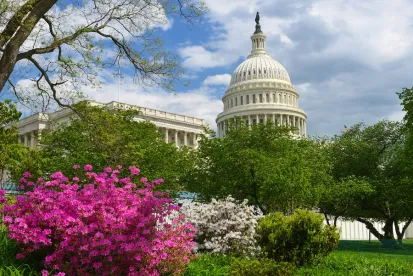Senate Returns. The U.S. Senate returned to Washington, D.C., this week for the first time since late March 2020, and held several hearings and votes. In an effort to adhere to social distancing protocols, senators were permitted to participate remotely at some of these hearings. While no work specific to COVID-19 was accomplished, there was some continued scuttlebutt as to what might be included in a Phase 4 response, such as liability protections, a revamp of the Paycheck Protection Program, initiatives to provide funding for cities, and support for childcare institutions, among other measures. It is still early, however, especially because it is still unclear as to when the House may return to Washington, D.C.
EEO-1 Collection Postponed. On May 7, 2020, the Equal Employment Opportunity Commission announced that there will be no EEO-1 data collection in 2020. Of course, the Office of Management and Budget is still reviewing the EEOC’s 2019 request to renew the EEO-1 data collection form without the Component 2 wage-and-hour collection provisions that had been added in 2016. According to the announcement: “Pending approval from the Office of Management and Budget under the Paperwork Reduction Act (PRA) the EEOC would expect to begin collecting the 2019 and 2020 EEO-1 Component 1 in March 2021 and will notify filers of the precise date the surveys will open as soon as it is available.”
EEOC Updates COVID-19 Guidance. This week the EEOC updated its guidance relating to COVID-19 and discrimination law. Specifically, the Commission added questions addressing employees returning to work, reasonable accommodations, and “direct threat” analyses under the Americans with Disabilities Act.
Unions Demand Electronic Elections. On May 6, 2020, a coalition of labor unions sent a letter urging members of Congress, in any subsequent coronavirus legislation, “to include funding and a directive for the National Labor Relations Board (NLRB) to develop a system and procedures for conducting union representation elections electronically.” There has been a longstanding provision in federal appropriations legislation that prohibits the NLRB from issuing “any new administrative directive or regulation that would provide employees any means of voting through any electronic means in an election to determine a representative for the purposes of collective bargaining.”
Immigration Healthcare Bill. This week a group of bipartisan senators introduced the Healthcare Workforce Resilience Act, which is intended to address the current shortage of healthcare professionals that has been exacerbated by the current crisis. The bill does this by recapturing 25,000 unused visas for nurses and 15,000 unused visas for doctors. Given that the bill is bipartisan and addresses a critical healthcare workforce need, the Buzz thinks this one bears watching.
OFCCP Ombuds Service. On May 6, 2020, the Office of Federal Contract Compliance Programs announced that its Ombuds service is now available. The revitalized program has been in the works since September 2018, and OFCCP named its ombudsman, Marcus Stergio, in August 2019.
SCOTUS Holds Teleconference in Loo of In-Person Arguments. As we’ve discussed in recent editions of the Buzz, the Supreme Court of the United States held oral arguments this week via teleconference. Justice Ruth Bader Ginsburg, 87, even called in to the arguments from the hospital, where she was being treated for a gall bladder condition. By all accounts, the process went well. And, who knows? Maybe the process of allotting each justice a set amount of time to ask questions even encouraged the notoriously quiet Justice Thomas to chime in, as he did this week during a legal trademark case. Of course, not everything went smoothly. At one point, the sound of a toilet flushing could be heard on the line, which hopefully will not serve as a metaphor for the advocate’s arguments.




 />i
/>i
